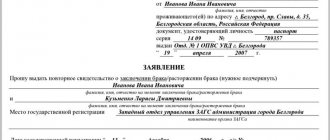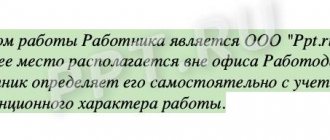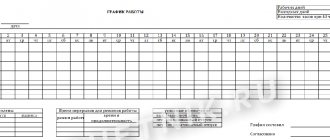According to the labor code
Modern Labor Code in Art. 21 and 22 clearly reflect the position of the law in relation to the rights and obligations of the parties to employment contracts. These articles provide an open list of specific rights and obligations of each party, which can be supplemented within the framework of employment contracts, if these additions do not contradict the current legislation of the Russian Federation.
This legislative position greatly facilitates the practice of legal labor protection: in the event of labor disputes related to these issues, it is possible to clearly clarify the problem from the point of view of the law, since all the main powers of the parties are presented in the text of the Labor Code of the Russian Federation.
Changes to the Labor Code of 2019
Labor protection: what is it, concept, definition
Every year the Legislative Assembly introduces a number of amendments to the Labor Code of the Russian Federation. By the end of 2021, it is planned to introduce a number of changes to some articles. However, the changes have already affected the following constituent sections of the Labor Code:
- the minimum wage increased. According to new data, it is 11,280 rubles;
- The retirement age for men and women has increased since the new year. For men, the limit was 65 years, and for women – 60 years;
- The pension reform did not bypass people of pre-retirement age. According to the new changes, employers who refuse to hire people aged 50-60 years are subject to criminal liability and penalties ranging from 100,000-200,000 rubles. In some cases, the fine can reach up to 18 employer salaries;
- from January 1, 2021, in order to visit the hospital and check your health, you no longer need to ask for time off or find personal time. Once every three years, the employer is obliged to provide a legal day off for medical examination;
- vacation for employees with many children at any time of the year. The employer now does not have the right to refuse an employee leave at the time he wishes or to postpone it indefinitely;
- work with foreigners has reached a new level. Now the employer needs to monitor the length of stay of the migrant, and if the visa has expired, terminate the employment relationship. The employer's decision to dismiss an employee hired for a position outside his specialty is considered right.
Important! Thus, the Labor Code of the Russian Federation is a regulatory legal act that is designed to regulate relations between employees, managers and self-government bodies, and is an excellent solution to resolving disputes.
Rights and responsibilities of employees that cannot be neglected
The Labor Code of the Russian Federation provides the text of the mandatory duties of employees, the level of which cannot be reduced under any working conditions and employment conditions. It also lists the rights of employees, which are guaranteed unconditionally. Such rights and responsibilities are called fundamental . They cannot be reduced by the employer - neither unilaterally, nor even by mutual consent, since they are strictly declared by law, and the direct responsibility of the employer is to ensure them. Neglect of this rule of law is fraught with liability.
Main responsibilities of hired personnel
As part of his individual employment contract, the employee is obliged to comply with the following obligations.
- The labor functions assigned by the contract to the hired employee are subject to strict performance to the extent specified in the contract.
- The internal regulations adopted by the local act of the enterprise become the norm for the employee, which he is obliged to adhere to.
- Any employee is subject to the requirements of labor discipline.
- Labor safety and protection, expressed in the rules adopted by the organization, is also a strict guide to compliance.
- In the process of work, the employee must achieve compliance with accepted labor standards.
- The property fund of the enterprise, material assets belonging to the employer or accepted by him for safekeeping from other persons, require careful treatment and safety on the part of the staff.
- If circumstances arise that may threaten the life, health or safety of property of personnel, the employer or third parties located at the enterprise, the employee’s duty is to inform his immediate supervisor about this as soon as possible.
- Recognize the significance of the concept of “trade secret” and, in general, any information data related to the work:
- if the employer has established one or another secrecy regime, comply with it;
- do not use information about the company for personal purposes and do not transfer it without the consent of the employer;
- if cooperation is terminated, all information media must be returned if they contain trade secrets, or such information must be destroyed in front of the employer.
NOTE! These obligations, given in the Labor Code in a general form, are specified or extended in specific cooperation agreements, additional agreements thereto, regulations, and instructions.
Right to work. Labor relations
GDZ in social studies◄ GDZ social studies 9th grade. Bogolyubov◄
Right to work. Labor relations
Let's remember
What is the role of the state in providing employment?
The state must strive to ensure maximum employment of the population (fight unemployment), create jobs and stimulate business to do this. The Constitution of the Russian Federation enshrines the citizen's right to work.
What is the relationship between work and wages?
Labor is the mental and physical activity of a person based on knowledge, skills, abilities and experience to achieve a useful result.
Wages are remuneration for work; they vary and depend on many conditions. It can be time-based, piecework, depending on social significance, risk, harm to health, etc.
The connection between wages and labor is direct. Citizens receive wages for their work.
What is the meaning of discipline?
Discipline ensures order in production and in the team; without it, effective work and its beneficial results are impossible.
What role does work play in human life and society?
Labor is the source of all material goods, which is vital for a person specifically and society as a whole. With the help of labor, a person satisfies his physiological (material), social and spiritual needs.
Let's think about it
How can a student get a job?
In order to get a job, a schoolchild needs to know that he cannot work more than 4 hours a day.
Also, this should not interfere with getting an education.
Depending on age, written parental consent may be required.
Also, the law prohibits schoolchildren from working with alcohol and nicotine products, as well as at night, for example, in nightclubs and bars.
Does a person’s attitude to work characterize him?
Attitude to work directly characterizes a person. This reflects his personal qualities - responsibility, conscientiousness, honesty, determination.
Questions "?"
What other proverbs of your people on this topic do you know?
Work always gives, but laziness only takes. Teach not by idleness, but by handicraft. Will and labor produce wonderful fruits. Labor feeds a person, but laziness spoils him.
Questions "?"
Explain how parts 1 and 2 of this article are related to each other.
The first part denotes the granted rights to work, and 2 states that states must ensure the implementation of this right to citizens.
Every citizen can choose any activity (within the limits of the law) to carry out work.
The second part of the article provides for measures aimed at realizing the right of citizens to work: professional retraining, etc.
All countries that have acceded to the Covenant are obliged to implement these measures so as not to violate the rights of citizens
Questions "?"
What types of work do you think can be considered acceptable for fourteen-year-olds? How do the conditions for entering a job differ between fourteen-year-olds and fifteen-year-olds?
A teenager has the right to work from the age of 14. From the age of 15, employment conditions are somewhat different.
Thus, at the age of 14, a teenager has the right to engage in work for no more than 4 hours a day (24-hour work week). The employer has the right to hire such an employee only with the written permission of the parents. Moreover, this should not interfere with learning.
For example, handing out leaflets or posting advertisements.
At the age of 15, a teenager has the right to go to work and sign an employment contract. Such workers should not work on night shifts, in enterprises where conditions are hazardous, and this should not interfere with training. At this age, a child does not have the right to work more than 36 hours a week.
Questions "?"
What is most important to you?
Three criteria are important to me: stability, social guarantees and comfortable working conditions.
Stability guarantees receipt of income within a certain period of time.
Social guarantees are security for the duration of vacation, days of incapacity, or illness.
Comfortable working conditions are necessary for every citizen in order to feel good at work, both mentally and physically.
Questions "?"
What do you think was the continuation of this incident? (To do this you need to know the law.)
In accordance with labor laws, if an employee is absent from the workplace for more than 3 hours without a valid reason, the employer has the right to consider this absenteeism and dismiss the employee.
These are legal actions of the employer, so in this story the employee is wrong. He violated the labor regulations, and therefore the norm of the Labor Code of the Russian Federation.
Let's check ourselves
What does the right to work mean?
The right to work is enshrined in the Constitution of the Russian Federation. Article 37 states:
Labor is free. Everyone has the right to freely use their ability to work, choose their type of activity and profession.
Forced labor is prohibited.
In addition, other regulations state:
Everyone has the right to work in conditions that meet safety and hygiene requirements, to remuneration for work without any discrimination and not lower than the minimum wage established by federal law, as well as the right to protection from unemployment.
The right to individual and collective labor disputes is recognized using the methods for resolving them established by federal law, including the right to strike.
Everyone has the right to rest. A person working under an employment contract is guaranteed the length of working hours established by federal law, weekends and holidays, and paid annual leave.
This means that every citizen of our country has the right to choose the way of working and to realize their abilities in the chosen direction.
What rights and responsibilities are included in an employment contract?
An employment contract sets out the rights and obligations of both the employee and the employer. It sets out all the rights and benefits of an employee that he can exercise in the course of his work.
And also, the rights of the employer, which allow him to carry out certain actions in relation to the employee’s work activity. The rights of both subjects are secured, as well as the responsibilities of the parties.
An employment contract refers (often) to labor regulations and charters of individual organizations, where all the rights and obligations of both the employee and the employer are clearly stated, taking into account position and qualifications.
What is a work book?
A work book is a document that reflects the labor activity of a citizen.
When applying for a job, a citizen provides a work book, where a record of acceptance for work in a certain position is made. If a citizen is transferred to another position, an entry is made about this in the work book.
Also, upon dismissal from work, a corresponding entry about dismissal is made in the work book, indicating the reasons.
In accordance with it, the pension is calculated, in addition, hiring for another job is carried out by reviewing the records to the Labor Code.
It is necessary that the employer's seals and signatures be present in the work book without fail, since their absence makes it impossible to calculate the length of service for the period worked in the institution.
In what cases is an employment contract terminated?
The employment contract terminates upon its termination or expiration.
An employment contract with an employee is concluded for a specific period (fixed-term) or indefinite (when the duration of the contract is not specified).
The employee has the right to renew the contract if the employer has no comments, or not to renew and continue working in another place.
Early termination of the contract may be at the initiative of the employer or the employee.
- 1. At the initiative of the employee - dismissal at his own request.
- 2. Dismissal at the initiative of the employer. It may be due to the fact that the employee cannot cope with his duties or has violated labor discipline.
What is the importance of work discipline?
Discipline is necessary in any team when carrying out work activities.
Compliance with it is the responsibility of the employee. Labor discipline is ensured by the creation of favorable conditions for normal work, a conscious attitude to work, methods of persuasion, education, as well as encouragement for conscientious work.
Discipline is not only about timely attendance at the workplace and full use of working time, but also about a conscientious attitude towards work.
What responsibility does a violator of labor discipline bear?
Most often, discipline is regulated by internal regulations. Disciplinary sanctions are applied to their violators.
For damage caused (damage to materials, products, tools, workwear, failure to ensure the safety of property), the perpetrators bear financial responsibility (obliged to compensate for damage).
Financial liability and disciplinary sanctions are the most effective way to deal with a violator. It is for this reason that the law provides for sanctions for unscrupulous workers.
What do you know about the benefits provided by law for those who combine work and study?
In the Russian Federation, labor legislation provides benefits for those who combine work with study.
If, while continuing to study at school or in an educational organization of primary or secondary vocational education, a citizen begins to combine study with work during the academic year, then in this case, the working day should not exceed 2.5 hours (until the age of 16), 3. 5 hours - up to 18 years old.
Having entered the workforce after finishing 9th grade, a citizen has the right to study simultaneously through correspondence or part-time (evening) forms of study in any educational organization of secondary education.
Moreover, if a citizen makes progress in his studies, the employer must by law provide the citizen, in addition to the annual leave provided for all employees, additional leave for passing exams, preparing and defending his final work.
If, after graduating from 11th grade, a citizen enters work, he has the right to continue his studies at a higher professional educational organization, also through correspondence or part-time (evening) forms of study. And in this case, the law provides for additional vacations for citizens.
Thus, taking advantage of the benefits, a citizen will be able to continue his education without interruption from work, improve his qualifications, and find a more interesting job with a higher pay.
In the classroom and at home
1. When studying a paragraph on labor in one of the classes, a student expressed bewilderment about the proverbs given in the educational text. He said: “There are other proverbs that reflect a completely different attitude towards work: “You can’t do all the work”, “It’s not a bear, it won’t go into the forest”, “You won’t be rich from work, but you’ll be hunchbacked”, “From work the righteous cannot make stone chambers.” This means that people’s attitude towards work is not always positive.”
Explain what the proverbs cited by the student say and why they exist in everyday life. Draw a conclusion from the discovered contradiction. Which proverb best expresses your own attitude towards work?
“You can’t recycle all the work.” “It’s not a bear, it won’t go into the forest.” “Working will not make you rich, but you will be hunchbacked.”
The work is not shit and can stand. (From the editor, not for teachers)
These are sayings that justify laziness. Contradiction - some sayings have a positive attitude towards work, others negatively. Conclusion - there are lazy people, and there are hardworking ones. I am for hard work. Proverb: You can’t fish a fish out of a pond without effort.
You won’t be able to climb the tree without difficulty. you can't rip your ass off.
The Labor Code of the Russian Federation, in particular, states that an employment contract with an employee can be terminated by the employer in the event of absenteeism or the employee showing up at work in a state of alcohol, drug or other toxic intoxication.
Express your opinion: why is the same measure applied to an employee who still shows up to his workplace as to a absentee? An employee who fails to show up for work is considered absentee. However, an employee who appears at work in a state of alcoholic or other intoxication is also a truant.
An employee in such a state will not be able to carry out high-quality work activities; he should not be allowed to work, since he is not adequate and can cause harm to both himself and others.
For example, the first president of the Russian Federation B.N. Yeltsin very often appeared at work drunk in the second half of the 90s of the 20th century (see videos on YouTube), thereby causing enormous damage not only to his health, but also to all citizens of Russia and the prestige of the country.
The legislator correctly established this provision, and appearing under the influence of alcohol or drugs can also be considered truancy.
3. Citizen K., who graduated from school, was looking for an attractive job, changed five enterprises in two years and finally found an advertisement that interested him. When the administrator of the enterprise that advertised looked at his work record, he refused to enter into an agreement with citizen K.
Think about what could have caused the refusal. Did the administrator have the right not to hire an employee for an open position?
I believe that the reason could be a lack of necessary experience (if entries in the work book were not made). If there were entries in the employment record, the administrator considered that the citizen was irresponsible and often changed jobs, and therefore was not a stable option.
The administrator did not have the right not to accept an employee, since restrictions on admission are established by law; frequent job changes do not apply to such grounds for refusal to accept.
4*. Ask your older relatives when they earned their first ruble. What kind of work did they do in their working life? Did you have any incentives for your work?
My dad worked as a loader at a vegetable warehouse while still a schoolboy. He had no incentives other than money. Then he became a mechanic.
5*. Look in the local press or on the Internet for information about job offers for minors. Determine whether these offers are of interest to you and your classmates.
Analyzing the Internet resource, we can conclude that at the age of 14-15 years the following is required:
- advertisement posters
- cleaners
- food delivery couriers
For me, these offers are not of interest, since I have a goal - to graduate from school, enter a higher educational institution and get a well-paid, prestigious job.
Ensuring basic rights of employees
Directly follow from the obligations of employers prescribed by labor legislation. An employee who assumes the functions of concluding an employment contract can count on the following rights.
- The concluded employment contract is a reciprocal document, so the employee can, for his part, initiate its signing, modification and termination within the framework of federal law.
- Through their representatives, personnel have the right to influence the collective agreement: negotiate, conclude collective agreements, and monitor the implementation of the provisions of the agreement.
- The concluded employment contract guarantees the unfailing provision of appropriate employment.
- An employee who comes to work can count on a workplace equipped according to accepted standards, the availability of materials, tools, equipment, documents, etc., necessary to perform the functions specified in the contract.
- One of the main goals of employment for an employee - financial security - must be provided regularly and completely (depending on qualifications, complexity of the work performed, its quantity).
- A staff representative can freely rest during the allotted time: during a lunch break, leaving work with a reduced working day, on weekends and holidays, during annual leave or other types of free time provided to him.
- The employee must be timely and fully informed about all the issues he needs regarding working conditions, its organization, safety, including legislative changes.
- If the job requires additional training or education, it must be provided by the employer (within the framework established by the Labor Code and other provisions of the law).
- To ensure and protect his interests, an employee can become a member of any professional associations, unions, organizations.
- The employee has the right to participate in the management of the organization, limited to certain forms provided for by the Labor Code and other regulations.
- If an individual or group conflict arises related to labor disagreements, it must be resolved by the methods established in the Labor Code. The employee is allowed to protect his infringed interests by any methods permitted by law.
- If an employee was harmed in the process of work due to the fault of the employer, he has the right to count on damages and compensation.
- All employees must be provided with compulsory social insurance.
FOR YOUR INFORMATION! The employer is not authorized to reduce the list of personnel rights, but within the framework of concluded employment contracts and/or additional agreements it is allowed to expand it.
Goals and objectives of the labor code, the object of regulation of labor legislation
Night work: Labor Code of the Russian Federation
The labor legislation of the Russian Federation has a clear goal, which is the mandatory establishment of guarantees for:
- the right and freedom of speech of a citizen in the workplace;
- creating comfortable working conditions;
- protection of personal interests of the organization’s employees represented by employees and department heads.
The Code is a guarantor of the protection of labor relations between employee and employer. In the event of any controversial situations, the regulatory legal act is intended to resolve the problems that have arisen regarding labor relations at the enterprise.
Trade union organization
In addition, there are a number of tasks, the implementation of which is intended to comply with labor legislation:
- in accordance with the requirements, organizing labor efficiency and managing the activities of managers;
- ensuring control over the employer regarding the training of employees, and in particular training in vocational education;
- compliance with the rules of social partnership and conclusion of collective agreements;
- providing material remuneration to workers and employers for their work;
- organization of state supervision over the activities of trade union organizations, as well as the participation of workers in the life of a professional cooperative;
- resolving controversial issues related to labor legislation;
- in accordance with federal legislation, the implementation of social insurance for working citizens.
Note! Whether or not to join a trade union organization is decided by the enterprise employee independently. No one has the right to influence the adoption of this decision; such orders do not exist at the legislative level.
Legislative acts of the Russian Labor Code make it possible to regulate legal aspects and the list of responsibilities of workers and managers. Labor protection includes the following issues:
- training or retraining of qualified personnel;
- increasing qualifications and skills within the job description;
- interaction between public institutions and private organizations in order to make a profit and influence the social component of society;
- questions touching on the topic of routine and rest of the working day, the system of monetary payment for work performed.
Important! A separate block of legislative acts is devoted to the regulation of labor relations for certain categories of citizens: minors, pensioners, teaching staff, military personnel, people working on rotational and shift work.
Additional rights and responsibilities for employees
Basic obligations and rights do not in any way prevent the possible emergence of additional ones. Section 12 of the Labor Code of the Russian Federation declares such powers of both parties.
Certain responsibilities assigned to the employee in addition to the main ones must be recorded in special documents (regulations, instructions, amendments to employment contracts). They must receive permission from both parties, which is confirmed by signatures on the relevant documentation.
The unilateral introduction of additional duties beyond the list of mandatory ones is not allowed.
In the same way, the list of rights can be expanded: additional rights of employees should also be reflected in local regulations. Their acceptance for mutual execution is recorded by the signatures of both parties.








